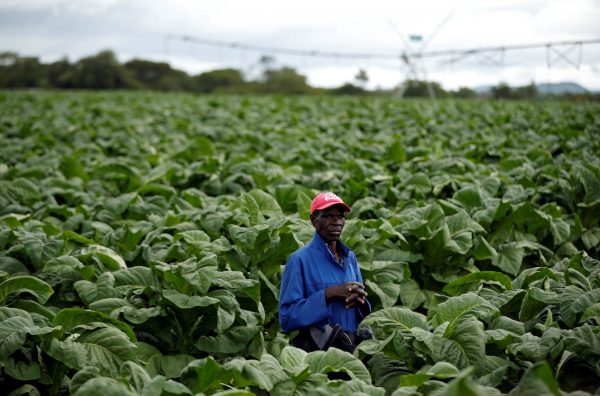China remains a unique case due to its willingness to engage with tobacco farming as part of agricultural development cooperation. Support for tobacco leaf as an agricultural crop has been included in bilateral agreements with countries such as Zimbabwe. These initiatives not only contradict China’s commitments under the WHO FCTC, but have questionable long-term development outcomes.
The Chinese development model is unique (and controversial) for several reasons: it is based on a policy of non-interference and differs from traditional Western models in its explicit inclusion of business opportunities for Chinese corporations, in addition to financial aid and loans. State-owned enterprises, for example, often play a role in development projects. The China National Tobacco Corporation (CNTC), a state-owned enterprise, is the largest tobacco company in the world, manufacturing about 40 per cent of global cigarette output.
CNTC has played a particularly prominent role in agricultural development in Zimbabwe, the second largest producer of flue-cured tobacco in the world after Brazil. Zimbabwe’s political relationship with China is based on a sense of camaraderie dating back to its struggle to gain independence from British rule in the 1980s.
Once the ‘breadbasket of Africa’, Zimbabwe’s agricultural output — including tobacco leaf — declined dramatically following the land reforms implemented in the 1990s by former president Robert Mugabe. Isolated on the international stage following financial and political sanctions from the West, the government developed a ‘Look East’ policy choosing to strengthen its political and economic ties with China.
Tian Ze, CNTC’s subsidiary in Zimbabwe, was established in 2005 following an earlier memorandum of understanding ‘for the sole purpose of helping to revive the country’s tobacco output’. Support for the Zimbabwean tobacco industry is a development project with ‘Chinese characteristics’ as it provides a business opportunity for a signature state-owned enterprise primarily interested in obtaining quality raw materials to meet domestic demand. China is now the single largest export destination of Zimbabwe’s ‘golden leaf’, which generated US$933.7 million in 2016 or 31 per cent of foreign exchange.
The sheer size of China as a development partner and a market provides Tian Ze with significant influence in Zimbabwe. For example, Tian Ze prompted Zimbabwe’s shift from growing burley to flue-cured tobacco, which is used in Chinese brands. Tian Ze has also played a role in the expansion of contract farming in Zimbabwe, where farmers are provided with loans for inputs at the beginning of the season in return for a promise to sell to the company at the end of the season.
Tian Ze contracts are reported to include notably high mark-ups on inputs, with many farmers barely breaking even or unable to repay their debts at the end of the season. While Zimbabwe and China’s bilateral partnership around tobacco has seemingly benefited Zimbabwe economically in the short term, it has also created a dependence on Chinese markets nationally and on Tian Ze at the household level.
China’s support for tobacco as development is further questionable for several reasons. First, Chinese support directly contributes to the tobacco industry’s growth and runs contrary to China’s responsibilities as a signatory to WHO FCTC. Articles 17 and 18 specifically call on member states ‘to promote economically viable alternatives to tobacco production as a way to prevent possible adverse social and economic impacts on populations whose livelihoods depend on tobacco production’. The tobacco industry’s expansion will exacerbate other known harms of tobacco farming including child labour and deforestation.
Second, given that tobacco leaf is grown in many food insecure areas, additional support for the cash crop will negatively impact food security by displacing food crops and contributing to soil degradation.
Third, tobacco farmers are at risk from exposure to pesticides and nicotine poisoning which can have devastating health impacts.
As China strives for a greater economic and political role on the international stage, particularly through its Belt and Road Initiative development framework, state-sanctioned support for tobacco for development warrants greater scrutiny.
Jennifer Fang is Research Fellow in the Faculty of Health Sciences, Simon Fraser University.
Julia Smith is Research Associate in the Faculty of Health Sciences, Simon Fraser University.
This work was supported by the Social Sciences and Humanities Research Council grant 430-2018-00736.

